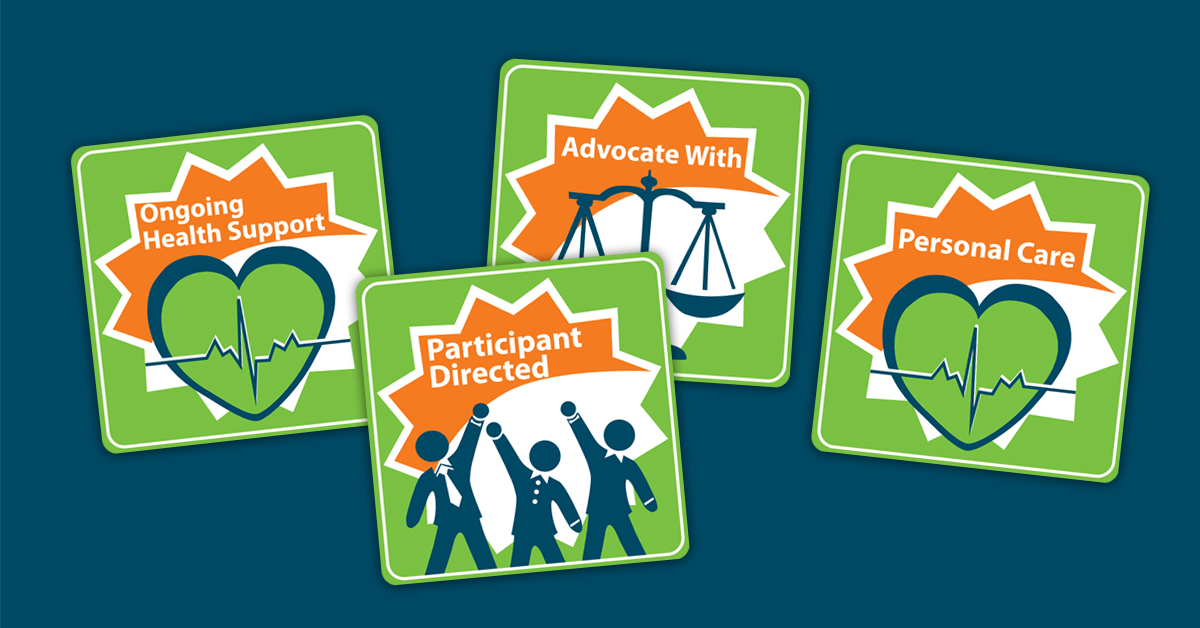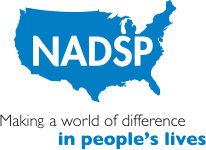
It’s demanding work. DSPs deserve credit.
Beyond just the complexity of the work itself, DSPs often feel like they are not acknowledged for their professional contributions. This means more than just occasional praise or casual acclaim. DSPs deserve a formalized system where their education, experience, and skill sets are recognized by national leaders in human services. With this type of system in place, DSPs can demonstrate their expertise and get credit for competency.
The NADSP E-Badge Academy provides DSPs with a way to earn electronic badges – ‘E-Badges’ – which can be used to build professional portfolios and show agencies, colleagues, peers, people supported, and other stakeholders the education and experience of DSPs. Through the online platform Web Courseworks, DSPs will submit evidence of either knowledge they have gained or exemplary supports they have provided. The E-Badges can then be used on resumes, shared on social media, included in performance evaluations, and more.
As mentioned above, the work of a DSP involves diverse job responsibilities and a wide range of various skill sets. Because of this, DSPs can earn more than two dozen different competency-related E-Badges or receive them based on the number of hours they engage in Accredited Education. Here are just some examples of the competency E-Badges that can be earned by Direct Support Professionals:
- Respectful Communication
- Data Collection
- Cultural Support
- Meal Preparation
- Community Networking
- Completing Documentation
- Crisis Intervention
- Participant Directed
- Advocate With
- Supporting Wellbeing
- Individual Activities
- Managing Documentation
- Ongoing Health Support
- Person-Centered Thinking
- Household Management
- And many more!


I agree with your e-mail, although I could add a few more categories of job fields, ie communication skills, counseling, stress management, transportation, shopping, meal planning, accounting, money management, and many more.
Thank you for all of your work in professionalizing the role of the DSP! I am curious as to how the E-Badge aligns with or complements the NADSP Credentialing Certifications. Our organization, LSS of MN, employs a few DSPs who are NADSP-R and working toward their Credentialing Certification I. I am mentoring three employees currently, with 5 more employees starting the process in 2019.